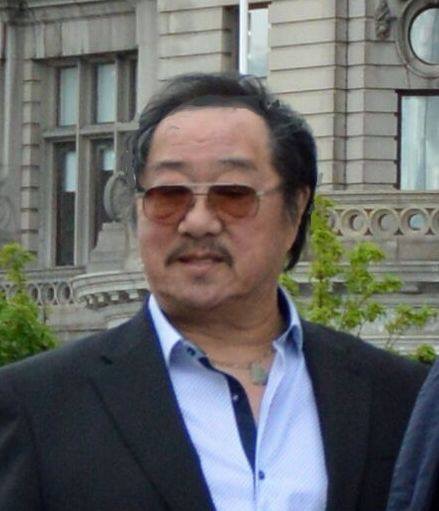It was 1946. It was Liverpool. A post-war city recovering like any other, but Liverpool was thriving, a crucial cog in the Northern powerhouse was in full motion. A city with a long history, at the height of its prosperity, trade relations where good, Liverpool was an iconic port town supporting cities countrywide.
Following the beginning of World War II, the government set out to draft in more men to replace those that had left Liverpool as part of the war effort, thus in 1940, approximately 20,000 Chinese sailors were hired to retain these vacant roles. However, the new workers faced rather unfair treatment, their wages were between 66%-75% less than their British counterparts and they were also refused the additional £5 ‘war risk’ bonus that their colleagues were granted.
The long-running alliance between the Chinese and Liverpool is one that dates back to the mid-1800s an alliance that is well and truly rooted in the cultural identity of the city. This fruitful connection laid the groundwork for future generations and is in large part to thank for Liverpool’s thriving Chinese community today.
Although in 1946 would change the lives of hundreds of families across Merseyside forever, one of those affected acutely was Peter Foo. Then two years of age, now 74, Peter recalls the lasting impact this has had on him and his wider family in the years following.

For many people it was just another ordinary day, but not for Peter and hundreds of other Merseyside children. In 1946, the Liverpool constabulary enacted Clement Attlee’s (Labour) government orders to remove and deport back to China over 1,000 men, many of whom were now married, fathers. One of those children was Peter, at the fragile age of only two years, he explains the lasting effect that this has had on the rest of his life “its hardened me, I don’t get too emotional” citing how the disappearance of his father at such a young age has oppressed his emotional capability.
In a family of five children, his mother was now left to raise her children alone without any knowledge of where her husband had disappeared to, something she would go to the grave not knowing. Peter reminisces about his childhood following the disappearance of his father, “those two eldest brothers were like the father to me” “they’d have me and my little sister cleaning our teeth”, something that he appreciates would have been a burden for them at such a young age themselves.
Peter remains passionate in his pursuit to have this part of history documented and officially recognized by the government, “this isn’t part of the history, it needs to become part of the history”. Since he found out what had happened to his father in 2004 he was desperate like many other of the now grown-up children to find out what had happened, why where these men repatriated what was the reasoning behind it? In 2015 Peter began a petition requesting that the government made a public apology on what had happened 69 years previous to their fathers, but the government is yet to officially pass comment on the matter, although Peter has received comment via letters sent in reply to him.
However, there are signs that the tide may be beginning to change for Peter and many of the other families affected by what happened in 1946, there is a glimmer, just a glimmer of hope that in the guise of the new ‘Dragons of the Pool’ exhibition in Williamson Art Gallery, Birkenhead that the stories of the relatives of the deported sailors are finally going to be heard and will hopefully go some way in raising awareness and educating the public of this atrocity.

The woman behind this new exhibition which ran from February to March this year, Rosa Fong spoke about how she aims to ‘bring to the public attention” the story of the children left behind. She aims to bring to life the tales of the children who one day came home with their father missing and their questions unanswered. Video interviews run alongside sound installations and also some never before released Burt Hardy images of the seamen in 1942 before they were deported.

Candidly, Rosa speaks about the lasting impact this has had on the children not only immediate but also the future years they would have to endure without their father, what struck her most was the “the continuity of what had happened, they grew up believing their fathers had deserted them” this notion is one that is particularly hard to reconcile with when hearing Peters story and seems to be a prominent belief amongst those left behind by their fathers in the stories Rosa has documented. As the years elapsed it became more and more evident for those left behind that they would never see their fathers again, wives would never see their husbands again, the human tragedy here is palpable first and foremost.
During the chat with Peter, he recounts finding out the news of his fathers passing in 1978, coincidentally the same year in which his mother passed away. He received a letter one day from an unknown name informing him of his father’s death, it became clear that this was his half-brother writing to him, someone he had no idea existed up until now.
It is a sad indictment of the city but the country also that this part of British history is yet to be documented adequately. Men with families and without had settled in Liverpool and working hard in the cities industry. Rosa got it right when she says “this is a part of history that should be re-evaluated, let’s not let this happen again” quite simply this is what must now happen.